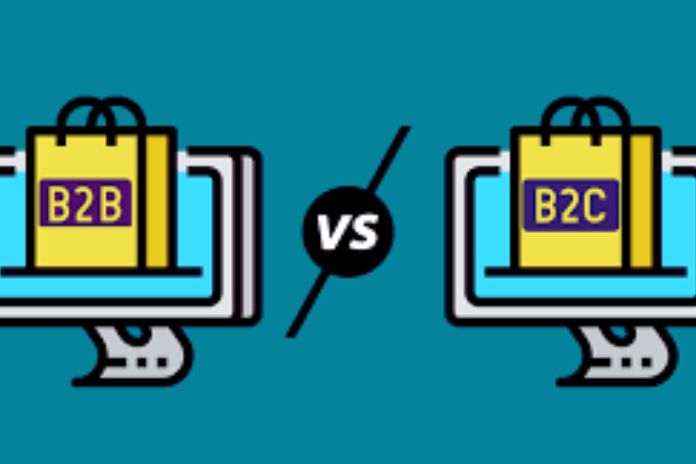Within the business world, several terminologies can be confusing to start with. In this article, we will talk about two of the most common ones to be used: B2B and B2C, two acronyms that name the two most used business models globally.
To create a relevant and coherent strategy, you need to know who your customers are and design your business based on that. Therefore, understanding the differences between B2B and B2C is crucial. Check out!
What B2B?
B2B is an acronym that means Business to Business; it represents companies that sell products or services to other companies. And this significantly interferes with buying behavior and, therefore, with how you should direct your business’s marketing and sales actions.
In general, selling to legal entities is a more time-consuming process since it depends on the approval of multiple people for the deal to take place. Even if presentations about a product or service are made to a single person, he will hardly be the only decision maker, acting more like a representative during the process.
Services performed for this type of customer tend to have a higher ticket since they tend to have a higher level of complexity and need to be performed on a larger scale, consequently demanding more work time.
This type of public makes purchases more rationally, considering each decision’s pros and cons. Price is an important but not a determining factor. Deadlines, payment methods, guarantees and how deliveries are carried out are equally important.
Due to the high values involved in a purchase, it is common for the contracting company to carry out checks to confirm the credibility and authority of the possible contractor before even entering into the details present in a negotiation of the presented proposal.
To build this credibility, it is essential to list success stories from previous clients and to have numerical data to present, of course, permanently preserving the confidentiality of its clients.
The best way to find out the confidentiality limit is by talking to your previous clients and writing down what information you can expose in a contractual clause.
What Is B2C?
B2C stands for Business to Consumer, that is, companies that have natural persons as customers. We are most familiar with this type of business because we are all final consumers of some brand. However, it is worth remembering that no matter how much you are a consumer, you are not necessarily the persona of your own business, so do not make strategic decisions just from your point of view.
It is typical for the product or service to have a lower average ticket than in B2B businesses, and the best way to monetize the business is to gain through scale. As expected, the number of individuals is much greater than that of legal entities, so B2C businesses have a more significant potential to generate large sales volumes.
Direct purchase by final consumers has a very different component from purchase by companies, with a powerful emotional component. Therefore, mental triggers Direct purchases by final consumers have a very different component from purchases by companies, with a powerful emotional component. Therefore, use mental triggers to stimulate immediate purchase.
The two most used mental triggers are scarcity, which offers a particular condition for a certain number of customers, and urgent, which also offers a condition, but this time with a specific deadline. These two triggers are generally linked to a primary consumer requirement: price.
In general, the price has a much more convincing impact than guarantees or payment methods, being decisive for the purchase choice. Marketing focuses less on creating educational content, although this can be done in parallel as a long-term strategy. In the short term, it is common for campaigns to be made based on triggers to increase sales substantially and quickly.
B2B And B2C: Which Is Better For Your Goals?
An important factor in deciding your business model is the industry and the problem you solve. Your product or service does not make sense for a company but for an end consumer or vice versa.
If your business is well suited to both models, you need to understand what your strengths and weaknesses are in each of them and what is the moment your company is going through.
For those who are just starting out and still don’t have much authority – it’s not a recognized name, they don’t have customers attesting to the quality, and they don’t have ways to measure the impact – B2C is a safer option. You can use marketing to become known and monetize your operation immediately. B2C is also easier to start with a lower investment and apply the return to the company’s growth.
B2B is more recommended if you have a higher initial investment to create structure and hire people who can help build the necessary credibility. It’s not impossible to start directly as B2B, but more resources are needed to drive that growth. On the other hand, acquiring greater profitability is an exciting model due to the recurrence and high average ticket.
Also Read: How Do Paid Media Campaigns In Marketing For B2B Companies?












